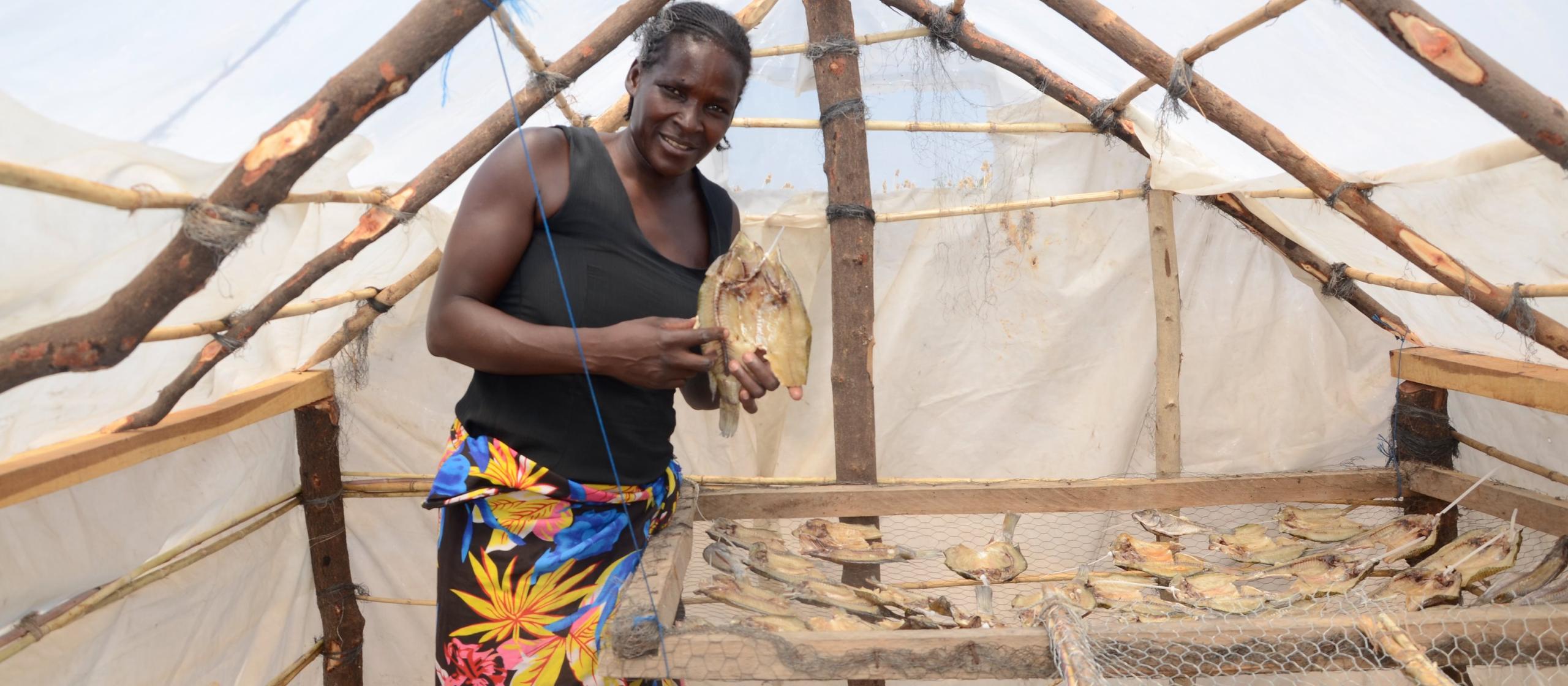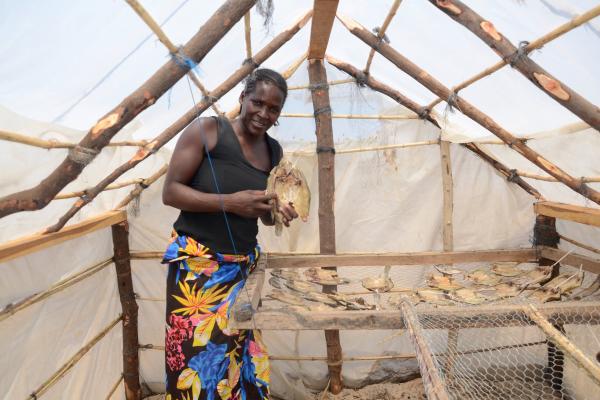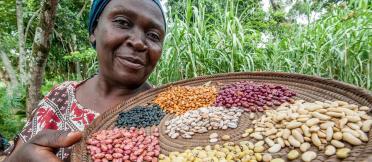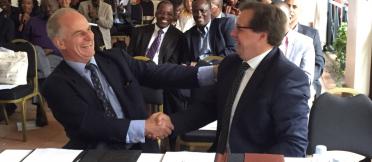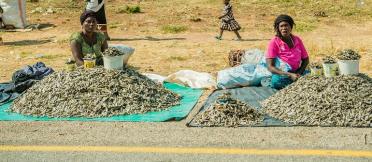- HomeHome
-
About ACIAR
- Our work
- Our people
-
Corporate information
- ACIAR Audit Committee
- Commission for International Agricultural Research
- Policy Advisory Council
- Agency reviews
- Executive remuneration disclosure
- Freedom of information (FOI)
- Gifts and benefits register
- Information publication scheme
- List of new agency files
- Contracts
- Legal services expenditure
- Privacy impact assessment register
- Commonwealth Child Safe Framework
- Benefits to Australia
- Careers
- 40 years of ACIAR
-
What we do
- Programs
- Cross-cutting areas
- Resources
- Where we work
-
Funding
- Research projects
- Fellowships
-
Scholarships
- John Allwright FellowshipScholarships to study in Australia for ACIAR partner country scientists to have Australian postgraduate qualifications
- ACIAR Pacific Agriculture Scholarships and Support and Climate Resilience Program
- Alumni Research Support Facility
- Publications
- News and Outreach
Date released
04 September 2020
In Eastern and Southern Africa, the COVID-19 pandemic is compounding issues of climate change and low agricultural productivity already faced by local communities. In this interview, Leah Ndungu, Regional Manager of ACIAR and Edidah Lubega Ampaire, Senior Programme Officer of IDRC, explain how they are strengthening their partnership program, Cultivate Africa’s Future (CultiAF), to help overcome the regions’ increasing food and nutrition challenges.
IDRC has been a close partner of ACIAR for many years, how is this collaboration enabling greater impacts and outcomes for the CultiAF programme?
Edidah: ACIAR and IDRC as organisations are similar in many ways. Both believe in the value of scientific innovation, in finding context-specific solutions to solve development challenges, and in lifting people out of poverty to promote growth. In regard to agricultural development and food security, both organisations are working to improve the livelihoods of smallholder farmers in developing countries. This is, in part, what brings the two organisations together under CultiAF.
As a result of the ACIAR and IDRC partnership, the CultiAF program has been able to operate in seven countries (Ethiopia, Kenya, Malawi, Mozambique, Uganda, Zambia and Zimbabwe) across Eastern and Southern Africa. If operating alone, it would be difficult for one organisation to reach out and make a significant investment in so many countries and hence, the partnership brings added value in terms of geographical reach and financial investment.
ACIAR and IDRC also combine technical expertise to support the research teams. If you look at the way CultiAF works, the program management team creates impact by working with researchers to discuss alternative ways of looking at things and of doing research. Being able to draw on the expertise from the two organisations creates impact for the research teams because they get the technical support they need to achieve their research objectives. And lastly, both organisations keep learning from each other, so we can find new methodologies and new ways of doing things as we continuously learn from each other.
What are your organisations doing specifically to support the continued progress of CultiAF during COVID-19?
Leah: At the onset of the COVID-19 crisis, we reached out to IDRC as a partner to express an ongoing commitment to our partnership, while providing assurances that ACIAR would continue with collaborative activities despite the disruptions brought about by movement restrictions. IDRC was already in contact with the teams and we jointly planned ways of engaging the research teams to ensure continuity.
One of these ways was the organisation of a webinar with the implementing partners of the CultiAF projects. The nine project research partners presented on the status of their research, the impacts of COVID-19 on the progress of project activities, and the proposed adjustments in light of the pandemic.
Additionally, under the COVID-19 context, the two organisations are regularly discussing with project teams and offering support that helps teams to make adjustments to the projects as the situation evolves. This includes providing technical guidance on a regular basis, granting small no-cost project extensions to enable the work to be completed whilst allowing for a level of flexibility, including in some cases integration of new approaches in response to COVID-19 disruptions.
The spread and the impact of the virus are increasingly evident across Africa. How do you see the scientists responding to food security and agribusiness needs that are arising as a result?
Leah: From my observation, scientists are responding to the opportunities available through short-term grants from research organisations. ACIAR, for example, has recently launched a research fund for our alumni scientists to develop proposals in response to specific issues in their countries, such as post-harvest losses, brought about by COVID-19 disruptions. Through this, researchers in ACIAR partner countries can showcase how they can accelerate research to build resilience and address food security in their specific contexts.
Edidah: In the short term, the scientists should be able to generate knowledge on how COVID-19 has affected the food system and the entire food supply chain. They should be looking at how the pandemic is affecting different people, who is most vulnerable and under what circumstances, the coping mechanisms that people have employed, and of those, what has worked and what has not worked. Everybody is being impacted, we need to understand how – and then use this knowledge to develop more resilient food systems for the medium and long term that will be able to withstand crises in future. Through various funding calls, IDRC has created opportunities for researchers to engage in this type of research, and we hope that innovative proposals will deliver on this much needed knowledge.
The key themes of the CultiAf program’s research include increasing productivity and reducing post-harvest losses, linking agriculture with nutrition and human health, gender equality, climate change and agricultural water management. Why are these considered of particular importance by your organisations?
Edidah: They are very important because when we talk about a resilient food system, these different themes are what we are referring to. There is no way you can increase productivity without addressing post-harvest losses, just like there is no way you can talk about enhancing nutrition without considering gender equality. For example, we know that women in Southern Africa constitute over 60% of agricultural labour, but more often than not, don’t have access to productive resources and are among the most malnourished groups. And we must not forget that all this is happening under a changing climate to which food producers must also adapt. In a nutshell, all the CultiAF themes are interlinked, which the COVID-19 pandemic has further exposed.
Moving forward, interdisciplinary research has to continue, bringing together expertise from different sectors. We should not have research questions that touch on just one or two themes – they need to be holistic. That way, you can measure impact across the entire food supply chain.
Will these research themes remain relevant in light of the current situation?
Leah: Food security is something that every investor and partner is speaking about because so many people in the developing countries where we work are going to be heavily affected by COVID. As such, this is an area that we need to continue focusing on and really see how we can enhance our research input.
In Eastern and Southern Africa, we are being faced with other challenges, such as the locust infestation and floods, which are compounding on the current situation and affecting the food security of more than 200 million people. It remains imperative for us to continue to work in the area of food security.
